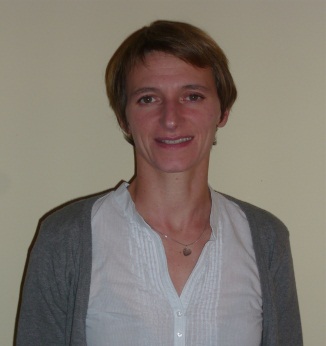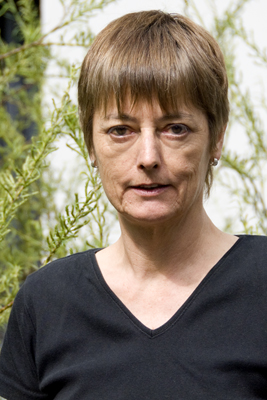DDL - UMR 5596
ISH - Bat C
14 avenue Berthelot
69007 Lyon
Tél : 04 72 72 64 12
Fax : 04 72 72 65 90
Contact

ELA 2012 : Invited Speakers
Keynote Speakers
A talk in honor of Michael Siegal, will be given by Luca Surian, Department of Cognitive Sciences and Education and Center for Mind/Brain Sciences, University of Trento, Italy 
Stéphanie BARBU
UMR 6552 ETHOS - Éthologie animale et humaine, website: Title: Socio-economic status and gender influences on early language acquisition: input exposure and developmental dynamics over the preschool years.Abstract:Socio-economic status (SES) and gender have been repeatedly identified as a source of variation in various aspects of language. There is great variability among children in the time course of language acquisition, with high-SES children and girls developing certain features of language earlier than same-age children. However, the question of whether SES impacts equally upon boys and girls, together with the magnitude and consistency of these differences throughout development, remains open. Moreover, children encounter tremendous variation in the language spoken around them. This variation is not unstructured or random, but is instead socially structured along various dimensions such as speakers’ socio-demographic characteristics or situational contexts of speech. Increasing evidence shows that children do acquire some aspects of the structured variation found in adult speech at an early age. However, questions concerning how young children deal with this variation during language acquisition and when and how they acquire variable sociolinguistic patterns raise important issues that have been notably neglected. To assess SES and gender influences on both children’s verbal skills and sociolinguistic uses across early childhood, we compiled a set of studies investigating how children, from 2 to 6 years old, acquire a frequent phonological alternation in French: liaisons. Liaisons represent a challenging task when children have to identify words in the flow of speech leading to frequent errors in young children. Moreover, liaisons are of two types: obligatory liaisons, which are categorical and do not vary with speakers’ characteristics in adults; and variable liaisons, which are a sociolinguistic variable and are used differently by adult speakers according to their identity. Liaisons are also a strong indicator of frequency effects. Therefore, liaisons are prone to evidence the impact of quantitative and qualitative differences in children’s input bridging the gap between psycholinguistic and sociolinguistic perspectives.Curriculum:Stéphanie Barbu is a lecturer at the University of Rennes 1 (Rennes, France). Since 1996, she has conducted her research within the “Animal and human ethology” department, UMR 6552, associated with the CNRS. She obtained her PhD in biology in 2000, specializing in human ethology first focusing on peers’ social interactions and friendships during early childhood. She became a permanent faculty lecturer in 2001. From 1996 to the present, she also teaches ethology, behavioural neurosciences and developmental psychology to students from biology and psychology classes. She dedicates her research to the study of language in the nest of social interactions and relationships. Currently, her primary focus is on children’s social and language development covering a large period of development from preschool to school years and by combining naturalistic and experimental studies in the various contexts of children’s social life: school and family. The main questions are: how social partners (adults and peers) influence children’s verbal and social skills and behaviour, and how children use language to manage their social interactions and relationships? The overall goal of this research is to expand our understanding of the nature of social influences and mechanisms underlying human verbal and social behaviour. Her research benefits from a strong interdisciplinary remit, integrating perspectives and methodologies from ethology, social neurosciences, psycholinguistics and sociolinguistics. She has participated or coordinated a number of scientific programs funded by the French CNRS, Ministry of Research, or ANR-National Agency of Research on several main topics: evolution of language, comparative approaches humans/animals of verbal/vocal development, learning and uses in typically developing populations (programs “The origin of man, language and languages”, “ANR - young researchers”) or after perceptual impairments and recovery (e.g., deaf children with cochlear implants, program “Cognitic”); sociolinguistic variation, acquisition and uses within social networks (programs “Complex systems in social and human sciences”, “Spaces and territories”, “ANR - Learning, knowledge and society”). She has been invited to talk at leading international conferences and symposia across a diverse range of fields including ethology, gender development and language acquisition, and to the general public at conferences and national broadcasts. 
Steven GillisComputational Linguistics and Psycholinguistics Research Center Website: http://www.cnts.ua.ac.be/~gillis/ Title: Will they ever catch up? The effects of auditory depreviation and cochlear implantation on language acquisitionAbstract:Curriculum:Steven Gillis (PhD in Linguistics in 1984) is currently professor of Language Acquisition and Language Processing at the University of Antwerp, and co-director of the Computational Linguistics and Psycholinguistics Research Center (CLiPS) http://www.cnts.ua.ac.be/~gillis/. For the last 20 years he has published about the acquisition of Dutch as a first language, mainly focusing on prelexical development and early phonological, morphological and syntactic acquisition and development. Currently his research efforts are especially geared towards early language and speech in deaf children with a cochlear implant. He has a vivid interest in artificial intelligence and machine learning, especially the computer simulation of natural language acquisition. In this area, he was the first linguist to receive the IBM Award for Computer Science (in 1979). He was involved in the CHILDES enterprise almost from its conception onwards, and is still hosting a CHILDES mirror at the University of Antwerp. He was also actively involved in a major effort that the Dutch and Flemish governments deployed for the collection of a corpus of present-day standard Dutch (“the Spoken Dutch Corpus”). 
Elena LievenDirector, Max Planck Child Study Centre, University of Manchester Websites: http://www.psych-sci.manchester.ac.uk/staff/ElenaLieven ; http://www.eva.mpg.de/psycho/staff/lieven/ Title: Exploring pathways of language developmentAbstract:In this talk, I will address the question of what changes in the child’s language system during development. I will start with preverbal communication and argue that this provides an essential and universal basis for learning language. Then, using corpus, modeling and experimental results, I will track the role of frequency, semantics and pragmatics in the ways that linguistic representations develop in the early years. I will conclude by suggesting that it is much easier to account for these data using a probabilistic network model than a rule-based model Curriculum:ELENA LIEVEN is Director of the Max Planck Child Study Centre, School of Psychological Sciences at the University of Manchester and holds a Professorship there. She is an honorary Senior Research Scientist in the Department of Developmental and Comparative Psychology at the Max Planck Institute for Evolutionary Anthropology, Leipzig. She did her PhD is at the University of Cambridge. From 1996 – 2005 she was Editor of the Journal of Child Language. She has been centrally involved in the design and collection of naturalistic child language corpora including, recently, the Max Planck ‘Dense databases’. She is a member of the Chintang and Puma Documentation Project, a DOBES project funded by the Volkswagen Foundation aiming at the linguistic and ethnographic description of two endangered Sino-Tibetan languages of Nepal. Lieven’s principal areas of research involve: usage-based approaches to language development; the emergence and construction of grammar; the relationship between input characteristics and the process of language development; and variation in children’s communicative environments 
Stephanie StokesInstitute of Language, Brain & Behaviour Website: http://www.cmds.canterbury.ac.nz/people/stokes02.shtml Title: Learning in Emerging Lexicons: Crosslinguistic EvidenceAbstractToddlers' first spoken words are influenced by the sound (phonological) and whole word (lexical) characteristics of words in the adult input, and the statistical regularities with which they occur. For example, toddlers' first words are short words that sound similar to many other words in the adult input (e.g. cat has 35 similar words, or 'neighbors', such as mat, pat, cap, kit). Such words have 'high neighborhood density.' Words that have few phonological neighbors are called 'sparse' words (mouth has five neighbors, mouse, myth, moth, south, mouthe). Our research suggests that most English-speaking children rapidly pass through the stage of using the statistical characteristic of high neighbourhood density, and move on to learn words of low density (sparse words), whereas slower language learners have more difficulty learning low density words. We have shown that children who are 'late talkers' use significantly more 'dense' words than typically developing children of the same age. Is the same phenomenon witnessed in other languages? How can these results be interpreted? Curriculum:Stephanie F. Stokes is a member of the Institute of Language, Brain & Behaviour, a professor of communication disorders, and Associate Dean of Postgraduate Research at the University of Canterbury, New Zealand. She has held academic posts in Australia, Hong Kong, England and New Zealand. She has served as an Associate Editor of JSLHR and is currently an Action Editor for JCL. 
Luca SurianDepartment of Cognitive Sciences and Education and Center for Mind/Brain Sciences University of Trento, Italy Website: http://www.unitn.it/en/cimec/11745/luca-surian Title: "Should we see language and conversation as the keys to understand cognitive development? A talk in honor of Michael Siegal"Abstract:A very rich literature on early cognitive development suggests that preverbal infants possess some abstract knowledge in a variety of domains such as objects, mechanical causation, number, space and social cognition. By contrast, preschoolers are reported to typically fail on numerous tasks tapping the same domains. Why are infants so competent and preschoolers so ‘incompetent’? The empirical and theoretical works by Michael Siegal help us to reconcile these apparently contraddictory findings and to see how a full account of cognitive development needs to pay attention both to the innate bases of core domains of knowledge and to the effects of language and conversational experience on children’s conceptual development and performance on experimental tasks. In this talk, I will illustrate Michael’s ideas by mainly focus on evidence that points to the early emergence of a sense of fairness and knowledge of mental states and I will evaluate competing interpretations on the effects of language experience reported in our recent studies on bilingual children and deaf infants. Curriculum:Luca Surian is a Full Professor of Developmental Psychology at the University of Trento, Italy. He also held appointments at the MRC Cognitive Development Unit in London and at the Departments of Psychology of the Universities of Padua (Italy), Trieste (Italy) and Greensboro (North Carolina), where he was supported by a Fullbright Scholarship. For more than 20 years, he has been carrying out research on the development of language and cognitive processes, with a particular interest in the conceptual development and the acquisition of communicative competence both in typically developing children and in children with atypical development, such as those with autism and specific language impairment. Recently, he has pubblished a number of studies on the development of social cognition in preverbal infants, monolingual and bilingual children and deaf children born from deaf or hearing parents. |







